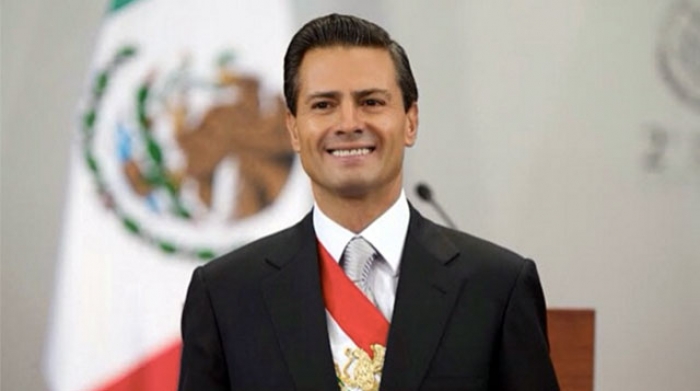Over the next 12 months, however, the government and its allies have undermined the mechanism (known by its Spanish initials as the SNA), according to the academics and anti-graft campaigners who helped draft the legislation.
Anti-corruption activists have been harassed and spied on with surveillance only sold to national governments, civic organisations have been targeted for investigation, and congress has failed to name a new anti-corruption prosecutor or specialized judges.
The delays and harassment have prompted uncomfortable questions over the government’s commitment to stopping graft. And the failure to implement the SNA as it was designed has led to accusations that Mexican politicians are more keen to cover up for each other than to crack down on kickbacks.
“There is an enormous resistance in the political class,” said Juan E Pardinas, director of the Mexican Institute for Competitiveness, a thinktank. “Many politicians cannot imagine being politicians without using mechanisms associated with corruption,” he said. “It’s the very heart of the political system.”
Corruption costs Mexico between 2% and 10% of GDP, according to estimates. Hardest hit are the poor, who have been calculated to spend about 14% of their income on “extra-official” payments – everything from paying for bureaucrats to process paperwork to giving “tips” for garbage collection. Police routinely demand motorists give them a “mordida” (little bite) to escape traffic tickets.
Perceptions of corruption have worsened since the country ended one-party rule by the Institutional Revolutionary Party, PRI, in 2000. Many ordinary Mexicans feel that corruption has stopped lubricating the body politic and is now corroding the state – fueling the violence which has reached levels not seen since the country started keeping statistics 20 years ago.
“Corruption, impunity and grave violations of human rights are illnesses that are undermining the health of the nation and threaten its political, social and economic development,” said the actor Diego Luna earlier this week, at show of force by the civil society and business groups pushing the SNA.
“Everyone suffers a deep and outrageous injustice and we are not willing to become accustomed to it.”
The SNA was supposed to introduce new special anti-corruption prosecutors and courts, overseen by an oversight committee of ordinary citizens.
But politicians have proved unenthusiastic about the initiative, and pushed instead for an individual anti-corruption tsar. Campaigners say that such a figure would be more susceptible to influence and would ultimately be toothless.
Government-friendly media outlets have provided a platform for such criticism, publishing a string of hostile articles on the SNA. The Green party senator Pablo Escudero, president of the Senate, recently told El Universal newspaper that the oversight committee would be at risk of conflicts of interest and alleged cronyism in the selection process. Members of the selection committee reject the accusations, saying the process is transparent and that potential conflicts were made public.
Meanwhile, anti-corruption campaigners are still stinging from the discovery that they were among the Mexicans whose smartphones were targeted with sophisticated spying software, according an analysis by Citizen Lab at the University of Toronto.
Several of those groups were also abruptly audited by the country’s tax authorities within days of each other, said María Amparo Casar, executive president of Mexicans against Corruption and Impunity, which has exposed graft through investigative journalism.
“We managed to have important participation (with politicians) in drafting the laws,” Casar said of the process of helping to launch the SNA. “After that, it has been difficult.”
Despite last year’s fulsome apology for the so-called Casa Blanca scandal, Peña Nieto has at times seemed unconcerned by the issue, once telling reporters that corruption was a “matter of culture”.
Cultural or not, graft is a recurring theme in the country’s politics. On Monday, Javier Duarte, the former governor of Veracruz state, was deported from Guatemala on charges of extensive corruption – only for a judge to reject most of the charges because of mistakes in the investigation.
Last week, a father and son died when a sinkhole swallowed their car on the highway to Acapulco. Peña Nieto had inaugurated the highway – which was built over budget and behind schedule – just three months earlier.
A spokesman for the president said that Peña Nieto and his government were “committed to the struggle against corruption” and had supported the creation of the SNA throughout.
“The government salutes all initiatives by different sectors of civil society in favour and against corruption,” he said.
People involved in establishing the SNA say that the apparent hostility to the project owed much to the PRI’s historic view that civic organisation posed a potential threat to its rule.
“I think they believe that we have this ultimate goal of destroying the political parties and taking power,” said Viridiana Ríos, a scholar at the Wilson Centre, a Washington thinktank.
“For them, this is not a battle about improving the country’s laws,” she said. “This is a political battle [for them] about who is going to have power and the ability to make decisions.”
More about: #Mexico #PeñaNieto
















































